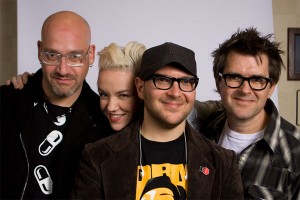In 2016, the average branch of the New York Public Library operates as a lightly funded community center, with some classes for kids, a climate-controlled place for seniors to knit and Internet time for anyone who can’t afford their own. Books are largely beside the point, donations of gently used volumes not accepted, and quiet is no longer enforced since reading isn’t the primary function of the institution. It’s more about experience now.
In a really thought-provoking Business Insider piece, David Pecovitz of boing boing tells Chris Weller that experience is also the future of libraries, though he believes it will be of a much more technological kind, virtual as well as actual. He predicts we could wind up with a “library of experiences.” Perhaps, though such tools and access may become decentralized.
An excerpt:
The definition of a library is already changing.
Some libraries have 3D printers and other cutting-edge tools that makes them not just places of learning, but creation. “I think the library as a place of access to materials, physical and virtual, becomes increasingly important,” Pescovitz says. People will come to see libraries as places to create the future, not just learn about the present.
Pescovitz offers the example of genetic engineering, carried out through “an open-source library of genetic parts that can be recombined in various way to make new organisms that don’t exist in nature.”
For instance, people could create their own microbes that are engineered to detect toxins in the water, he says, similar to how people are already meeting up in biology-centered hacker spaces.
Several decades from now, libraries will morph even further.
Pescovitz speculates that humans will have collected so much data that society will move into the realm of downloading sensory data. What we experience could be made available for sharing.
“Right now the world is becoming instrumented with sensors everywhere — sensors in our bodies, sensors in our roads, sensors in our mobile phones, sensors in our buildings — all of which all collecting high-resolution data about the physical world,” he says. “Meanwhile, we’re making leaps in understanding how the brain processes experiences and translates that into what we call reality.”
That could lead to a “library of experiences.”
In such a library, Pescovitz imagines that you could “check out” the experience of going to another planet or inhabiting the mind of the family dog.•


